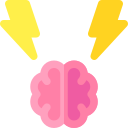Your Mind, Your Map: Personalized Medicine in Psychiatry
Chosen Theme: Personalized Medicine in Psychiatry. Explore how genetics, life context, and continuous measurement reshape care that fits you—not the average. Share your experiences, ask questions, and subscribe to follow our evolving journey into truly individualized mental health.
The Science of Precision: What Personalization Really Means
Genes, Receptors, and Response
Certain pharmacogenes, such as CYP2D6 and CYP2C19, may influence how quickly you metabolize medications, affecting dose needs and side effects. Genetics is one clue among many, never a verdict. Discuss testing with your clinician, and share thoughts on its usefulness below.


Biomarkers Beyond DNA
Inflammatory markers, sleep patterns, EEG signatures, and even gut health may help shape treatment choices when paired with careful clinical judgment. No single measure tells the whole story, but together they can sharpen the picture. What signals matter most to you?
From Assessment to Action: Building a Tailored Care Plan
Weekly symptom scales, side-effect checklists, and functioning scores turn progress into something visible and discussable. Patterns emerge sooner, and small gains are easier to celebrate. Would you try brief weekly check-ins if they focused on what truly matters to you?

When Pharmacogenetic Testing Helps
Testing can be useful after multiple trials, unusual side effects, or complex medication lists. It does not pick a perfect drug, but it may nudge choices or dosing. Share whether testing guided your care, and what you wish you had known beforehand.
Metabolism, Lifestyle, and the Right Dose
CYP450 enzymes, smoking status, caffeine intake, and other medications can alter drug levels. Personalized medicine weighs these factors to avoid underdosing or toxicity. Tell us about dose adjustments that changed everything, and how you and your clinician decided together.






Data Dignity by Design
Consent should be clear, revocable, and understandable. Encryption, minimal necessary collection, and local data processing reduce risk. You decide what to share and when. What controls would give you confidence to engage with digital tools supporting your care?
Closing the Precision Gap
If datasets lack diversity, algorithms can miss or misread patterns in marginalized groups. Equity means inclusive research, accessible testing, and human oversight. Tell us how we can ensure personalized tools work well for every community, not just a few.
Transparency and Clinician Education
Plain-language summaries, clear rationales for recommendations, and training help clinicians use personalized insights wisely. Patients deserve to understand the why behind choices. Would sample reports, glossaries, or explainer videos help you feel more confident in shared decisions?



Get Involved: Questions to Ask and Steps to Take
Ask about measurement-based care, side-effect tracking, expected timelines, and what a reasonable first milestone looks like. Explore non-medication options and supports. What question has unlocked the most clarity for you in a tough clinical conversation?
Get Involved: Questions to Ask and Steps to Take
Choose two or three signals—sleep, mood, energy, or connection—that reflect real life. Keep tracking lightweight and meaningful. Share your favorite tools or simple routines, and we will compile community-tested tips in an upcoming newsletter.
